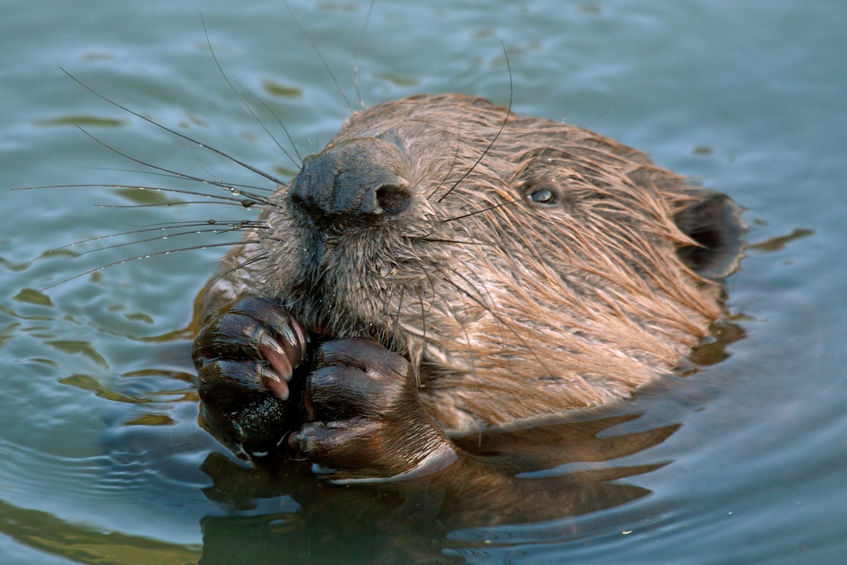Study says beavers bring benefits despite farmer concern

A study has concluded that beavers can bring 'measurable benefits' to people and wildlife despite concern from farmers over their possible impact on productivity.
The five-year trial looked into the impact of beavers on the English countryside as the government contemplates reintroducing them.
Beavers became extinct in the United Kingdom during the 16th century due to hunting for their fur, meat and scentglands.
Scientists studied the mammals since 2015 as part of the River Otter Beaver Trial, located in East Devon.
The ‘Science and Evidence Report’, published this week, is based on research undertaken by the University of Exeter team.
Their report concludes that the “quantifiable costs and benefits of beaver reintroduction demonstrates that the ecosystem services and social benefits accrued are greater than the financial costs incurred”.
It adds that other wildlife has 'greatly benefitted' from the beavers’ presence, while their dam building activities have also helped reduce the risk of flooding.
And while the beavers created 'localised problems' for a 'handful' of farmers and property owners, these can be 'successfully and straightforwardly managed with the right support and intervention', it says.
It comes as farming industry groups repeated highlight farmers' concerns over any beaver reintroduction plan.
The NFU said last year letting the animals loose in the wild could have a 'massive impact' on farming and the countryside.
The union's senior countryside adviser Claire Robinson told The Telegraph: “Any species introduction, particularly if it has not been in this country for hundreds of years, can have a massive impact on the many benefits that the countryside and farming delivers.
“Beavers in the wild could have potentially serious implications on farmland such as land drains being blocked in lowland arable areas.”
But the new 130-page report argues that the animals should be set free, arguing they prevent flooding and drought by building leaky dams.
Professor Brazier, who is chair of the Science and Evidence Forum that published the report, said: “Following five years of detailed research work, the report concludes that the positive impacts of beavers outweighed the negatives.
“A summary of the quantifiable cost and benefits of beaver reintroduction demonstrates that the ecosystem services and social benefits accrued are greater than the financial costs incurred.
“However, it also makes clear that those who benefit from beaver reintroduction may not always be the same people as those who bear the costs, highlighting that the reduction of flood risk in communities downstream may come at a cost of water being stored on farmland upstream.”
The report has now been presented to Natural England and to Defra for a decision on the future of East Devon’s beavers, and the status of the species in England.
The timing of these announcements is not yet known.








